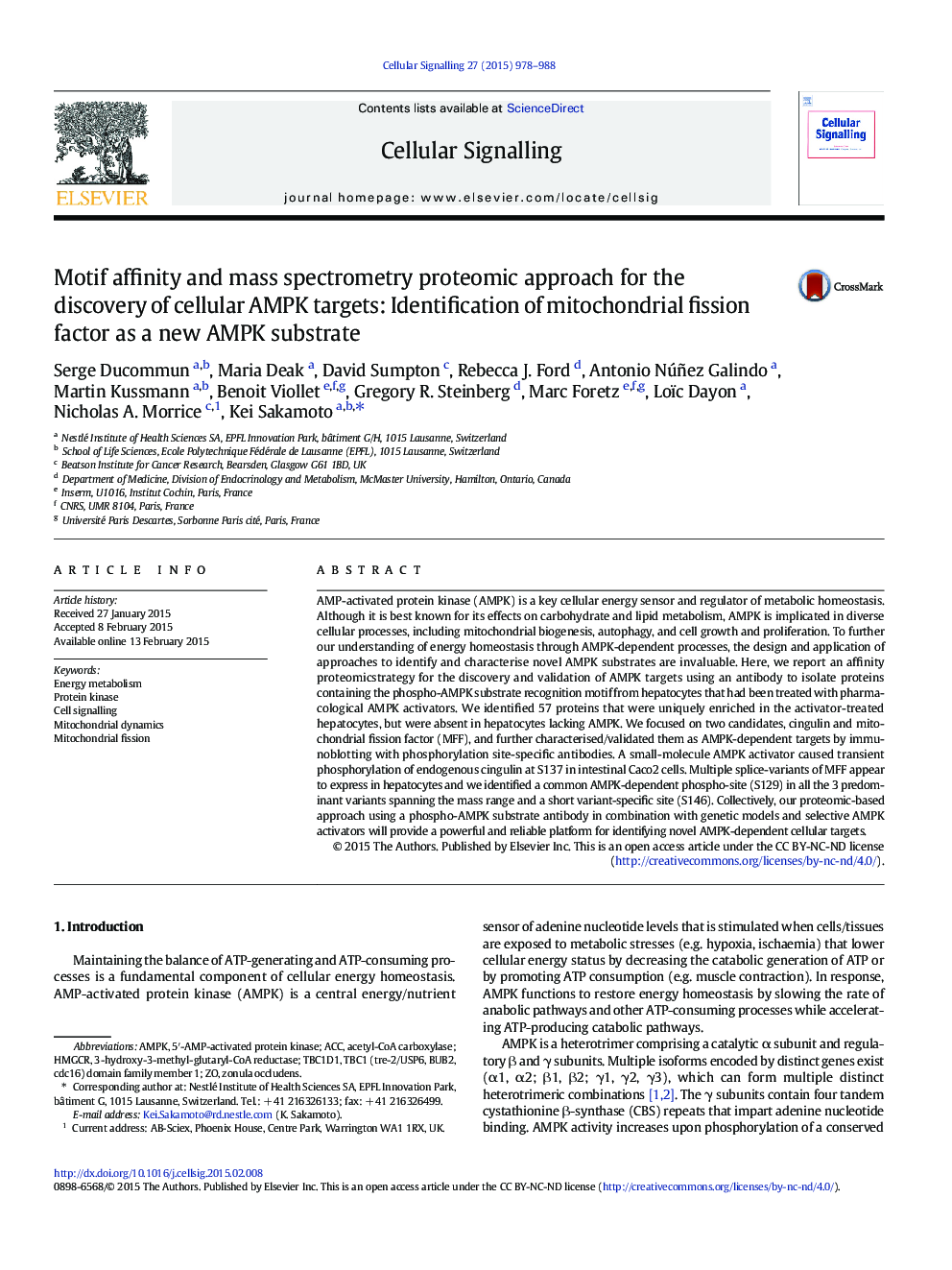| Article ID | Journal | Published Year | Pages | File Type |
|---|---|---|---|---|
| 10815119 | Cellular Signalling | 2015 | 11 Pages |
Abstract
AMP-activated protein kinase (AMPK) is a key cellular energy sensor and regulator of metabolic homeostasis. Although it is best known for its effects on carbohydrate and lipid metabolism, AMPK is implicated in diverse cellular processes, including mitochondrial biogenesis, autophagy, and cell growth and proliferation. To further our understanding of energy homeostasis through AMPK-dependent processes, the design and application of approaches to identify and characterise novel AMPK substrates are invaluable. Here, we report an affinity proteomicstrategy for the discovery and validation of AMPK targets using an antibody to isolate proteins containing the phospho-AMPK substrate recognition motif from hepatocytes that had been treated with pharmacological AMPK activators. We identified 57 proteins that were uniquely enriched in the activator-treated hepatocytes, but were absent in hepatocytes lacking AMPK. We focused on two candidates, cingulin and mitochondrial fission factor (MFF), and further characterised/validated them as AMPK-dependent targets by immunoblotting with phosphorylation site-specific antibodies. A small-molecule AMPK activator caused transient phosphorylation of endogenous cingulin at S137 in intestinal Caco2 cells. Multiple splice-variants of MFF appear to express in hepatocytes and we identified a common AMPK-dependent phospho-site (S129) in all the 3 predominant variants spanning the mass range and a short variant-specific site (S146). Collectively, our proteomic-based approach using a phospho-AMPK substrate antibody in combination with genetic models and selective AMPK activators will provide a powerful and reliable platform for identifying novel AMPK-dependent cellular targets.
Keywords
Related Topics
Life Sciences
Biochemistry, Genetics and Molecular Biology
Biochemistry
Authors
Serge Ducommun, Maria Deak, David Sumpton, Rebecca J. Ford, Antonio Núñez Galindo, Martin Kussmann, Benoit Viollet, Gregory R. Steinberg, Marc Foretz, Loïc Dayon, Nicholas A. Morrice, Kei Sakamoto,
